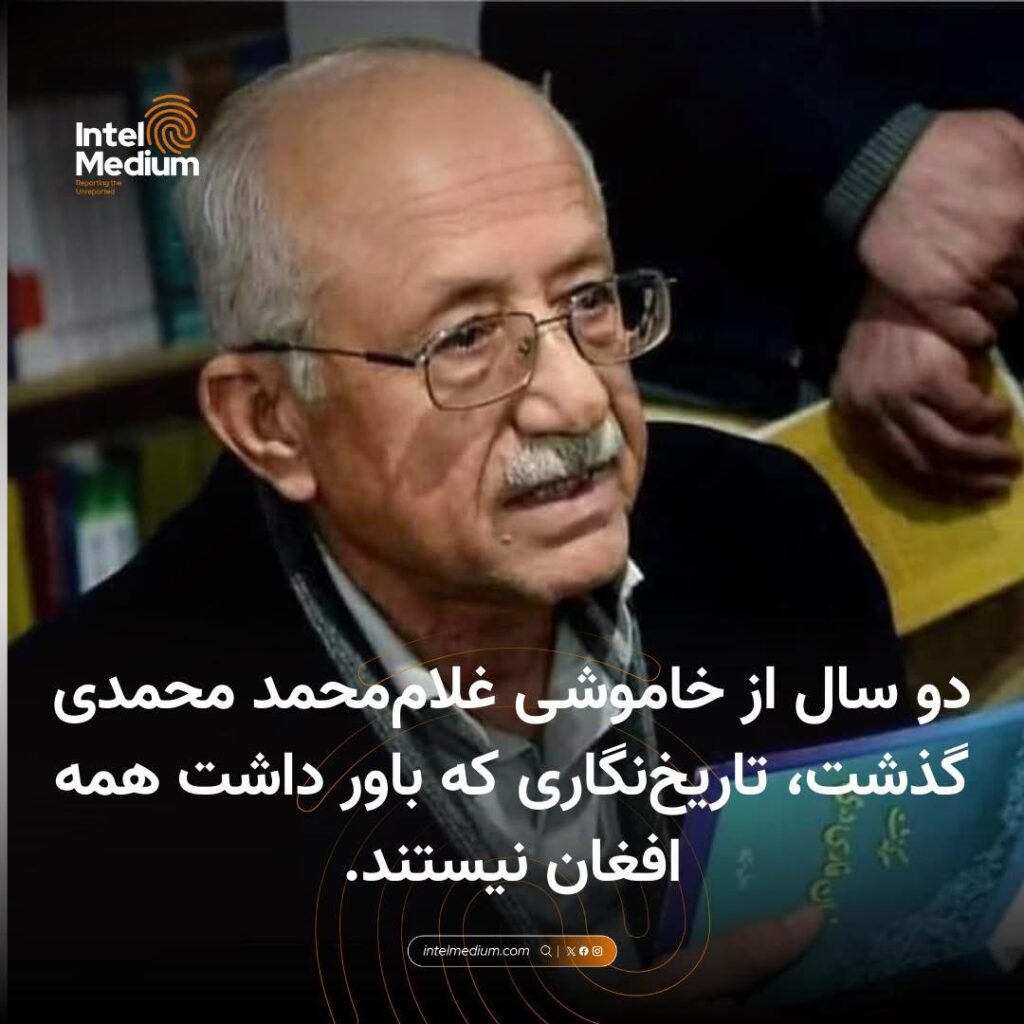
Second Anniversary of the Death of Ghulam Mohammad Mohammadi: A Historian Who Believed Not All Are Afghan
Today marks the second anniversary of the death of Ghulam Mohammad Mohammadi, a renowned Afghan writer and historian, whose scholarly contributions earned him a prominent place in the historiography of Afghanistan. With over five decades of academic activity, he significantly shaped the understanding of the country’s modern history and identity.
Born in 1333 in the town of Anaba, Panjshir, Ghulam Mohammad Mohammadi graduated from Kabul University in history and literature. He spent many years teaching and conducting research, and despite being injured during the wars, he continued his scholarly work. Ultimately, he retired from the Ghulam Haider Khan High School in the Khair Khana area.
Mohammadi left behind more than 30 published and unpublished works, primarily focusing on contemporary history, ethnic identity, the Durand Line, the Persian language, and Afghanistan’s internal politics. In his writings, he critically examined issues such as the suppression of political freedoms, the dependency of governments on foreign aid, and the role of ethnic policies in the country’s crises.
In his books, including We Are Not All Afghan, Durand: Acknowledge This Wall of Death, and The Quagmire of Contemporary History, Mohammadi sought to challenge dominant narratives about Afghanistan’s history and identity. In History and Civilization of the Tajiks, he explored the historical roots of the Tajik ethnic group, while in The Glory and Range of the Persian Language, he highlighted the role of Persian in the region’s civilization.
According to his close associates, Ghulam Mohammad Mohammadi battled cancer for over a decade, making multiple trips to India for treatment. He passed away on April 5, 2023.
Two years after his passing, many researchers consider his works to be vital sources for understanding ethnic identity, border politics, and critical historiography in Afghanistan.
